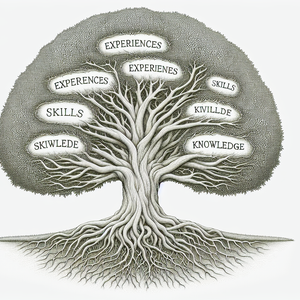The Hidden Earnings of Travel Agents

Before delving into the hidden earnings, it’s essential to understand the foundation upon which travel agents build their financial success: their base salary. Generally, travel agents earn between $30,000 to $50,000 annually, influenced by factors such as experience, location, and the agency they work for. However, this figure is often just a fraction of their total earnings potential. Many agents view their base salary as a starting point rather than the end goal, leveraging additional income streams to enhance their financial stability.
Commissions from Bookings
One of the primary ways travel agents increase their earnings is through commissions on bookings. Travel suppliers, including airlines, hotels, cruise lines, and tour operators, often pay agents a commission for every booking they make. These commissions can range from 5% to 20% or more, depending on the supplier and the type of service. For instance, luxury cruise lines may offer higher commissions compared to budget airlines, incentivizing agents to promote high-margin products. Consider a travel agent who books a $10,000 luxury cruise with a 15% commission; that agent would earn $1,500 from that single transaction. If they book multiple such cruises in a month, the earnings can quickly add up, showcasing the lucrative nature of commission-based income.
Service Fees
In addition to commissions, many travel agents charge service fees for their expertise and personalized service. These fees can vary widely based on the complexity of the travel arrangements and the agent’s experience level. For example, an agent may charge a flat fee for itinerary planning or implement a percentage fee based on the total cost of the trip. Service fees not only enhance an agent’s income but also serve to establish the value of their services. Clients who pay for expert advice and tailored itineraries are often more invested in their travel experience, leading to higher satisfaction rates and repeat business. This approach allows agents to diversify their income sources, making their earnings less dependent on fluctuating commissions.
Exclusive Partnerships
Travel agents often have the opportunity to form exclusive partnerships with travel providers, leading to additional income streams. These partnerships may involve negotiating unique deals, receiving bonuses for reaching sales targets, or earning incentives for promoting specific products. For instance, a travel agent may partner with a resort chain to offer exclusive deals to their clients, earning extra commissions or bonuses for every booking made through that partnership. Furthermore, agents might receive perks such as complimentary stays, upgrades, or promotional offers, which not only enhance their clients' travel experiences but also provide agents with valuable firsthand knowledge to share with future clients. This insider information can be instrumental in driving more bookings and, subsequently, more earnings.
The Impact of Networking and Referrals
Networking plays a crucial role in a travel agent's success. By building relationships with clients and industry professionals, agents can create a steady stream of referrals. Satisfied clients often recommend travel agents to friends and family, leading to increased business without the need for significant marketing expenditures. In addition to referrals, agents can form partnerships with other businesses, such as wedding planners, corporate event organizers, or local tourism boards, creating additional channels for income. These collaborations can lead to more bookings and a broader client base, further enhancing an agent's earning potential.
The landscape of travel agency work is rich with opportunities for those willing to explore beyond a traditional salary. By leveraging commissions, service fees, exclusive partnerships, and networking, travel agents can significantly enhance their earnings. This multifaceted approach not only increases financial stability but also enriches the travel experience for clients. As the travel industry continues to evolve, agents who adapt and maximize these hidden income streams will position themselves as invaluable resources in a competitive marketplace, ultimately leading to a more rewarding and prosperous career. The journey of a travel agent, therefore, is not just about facilitating travel—it's about crafting experiences and building a sustainable business model that thrives on creativity, relationships, and adaptability.
Luxury Travel Consultant
High-end travel agencies, luxury lifestyle companies, boutique travel firms
Core Responsibilities
Design and curate bespoke travel itineraries for high-net-worth clients, focusing on exclusive experiences.
Build and maintain relationships with luxury service providers, including private jet charters, five-star hotels, and bespoke tour operators.
Stay updated on luxury travel trends and emerging destinations to provide clients with unique recommendations.
Required Skills
Proven expertise in the luxury travel sector, with a deep understanding of high-end client expectations.
Excellent communication and interpersonal skills to establish rapport and trust with clients.
Strong negotiation skills to secure exclusive deals and upgrades for clients.
Travel Marketing Specialist
Travel agencies, tourism boards, travel-related startups
Core Responsibilities
Develop and implement marketing strategies to promote travel packages, focusing on digital channels such as social media, email, and SEO.
Create engaging content that highlights unique travel experiences and destinations to attract potential clients.
Analyze market trends and customer feedback to refine marketing efforts and increase conversion rates.
Required Skills
Proficiency in digital marketing tools (e.g., Google Analytics, social media management platforms).
Strong writing and storytelling abilities to convey the allure of travel experiences.
Experience in branding and positioning luxury travel products in a competitive market.
Corporate Travel Manager
Corporations, travel management companies, large event planning firms
Core Responsibilities
Oversee and manage travel arrangements for corporate clients, ensuring compliance with company policies and budget constraints.
Negotiate contracts with airlines, hotels, and travel agencies to secure the best rates and services for business travel.
Provide travel support and assistance to employees, including itinerary changes and emergency travel needs.
Required Skills
Strong organizational and time management skills to handle multiple travel requests efficiently.
Familiarity with corporate travel software and tools for booking and expense management.
Excellent communication skills for liaising with vendors and employees.
Travel Technology Specialist
Travel tech companies, online travel agencies (OTAs), airlines
Core Responsibilities
Evaluate and implement technology solutions that improve travel booking processes and enhance customer experiences.
Work closely with software developers to design user-friendly travel-related applications and platforms.
Analyze data and user feedback to continuously improve technology offerings and ensure alignment with industry trends.
Required Skills
Background in IT or software development with a focus on the travel industry.
Strong analytical skills to interpret data and generate actionable insights.
Knowledge of travel distribution systems (e.g., GDS, booking engines).
Destination Wedding Planner
Wedding planning agencies, event management companies, independent planners specializing in destination events
Core Responsibilities
Coordinate all aspects of destination weddings, including venue selection, vendor management, and guest accommodations.
Build relationships with local vendors and venues to provide clients with unique and authentic experiences.
Manage budgets and timelines to ensure seamless execution of wedding events.
Required Skills
Exceptional project management skills with attention to detail and the ability to multitask.
Strong negotiation skills to secure the best deals from vendors and venues.
Creative problem-solving abilities to handle unexpected challenges during the planning process.


